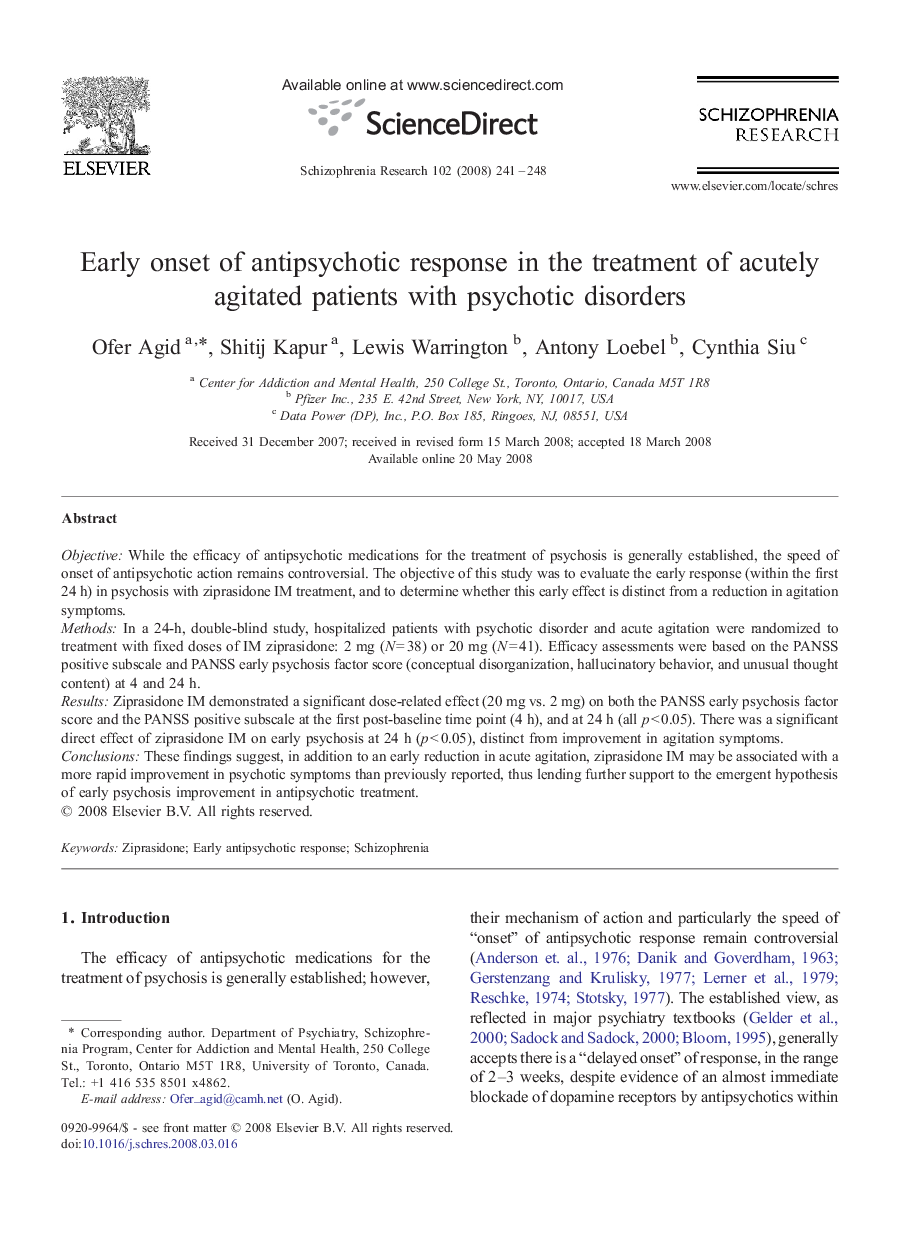| Article ID | Journal | Published Year | Pages | File Type |
|---|---|---|---|---|
| 339946 | Schizophrenia Research | 2008 | 8 Pages |
ObjectiveWhile the efficacy of antipsychotic medications for the treatment of psychosis is generally established, the speed of onset of antipsychotic action remains controversial. The objective of this study was to evaluate the early response (within the first 24 h) in psychosis with ziprasidone IM treatment, and to determine whether this early effect is distinct from a reduction in agitation symptoms.MethodsIn a 24-h, double-blind study, hospitalized patients with psychotic disorder and acute agitation were randomized to treatment with fixed doses of IM ziprasidone: 2 mg (N = 38) or 20 mg (N = 41). Efficacy assessments were based on the PANSS positive subscale and PANSS early psychosis factor score (conceptual disorganization, hallucinatory behavior, and unusual thought content) at 4 and 24 h.ResultsZiprasidone IM demonstrated a significant dose-related effect (20 mg vs. 2 mg) on both the PANSS early psychosis factor score and the PANSS positive subscale at the first post-baseline time point (4 h), and at 24 h (all p < 0.05). There was a significant direct effect of ziprasidone IM on early psychosis at 24 h (p < 0.05), distinct from improvement in agitation symptoms.ConclusionsThese findings suggest, in addition to an early reduction in acute agitation, ziprasidone IM may be associated with a more rapid improvement in psychotic symptoms than previously reported, thus lending further support to the emergent hypothesis of early psychosis improvement in antipsychotic treatment.
